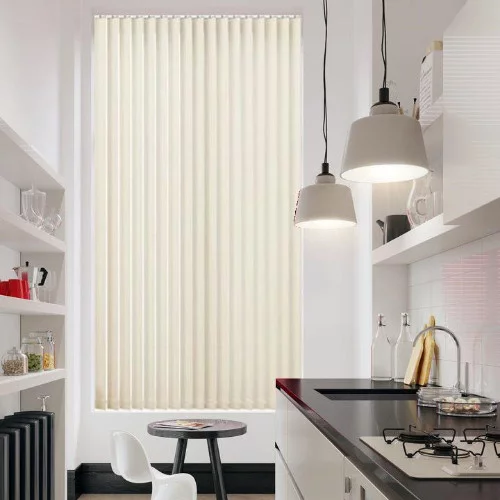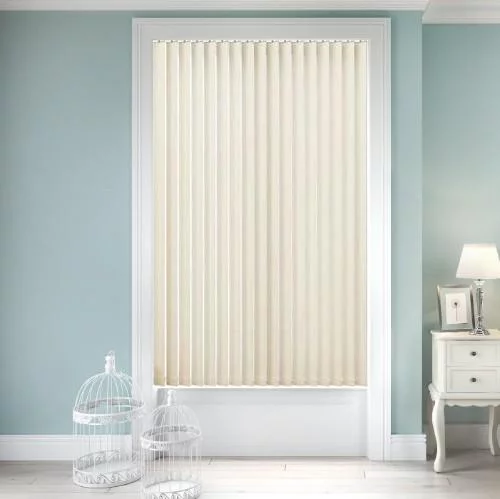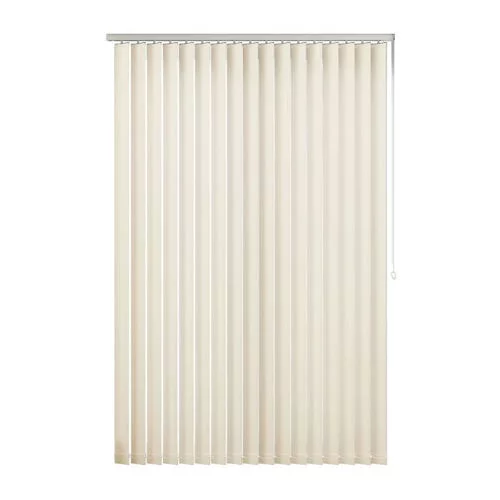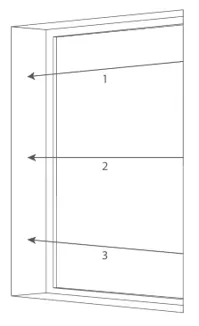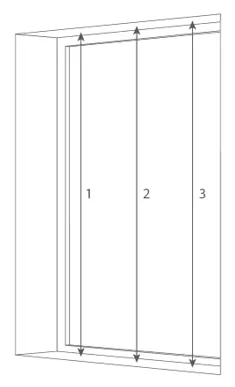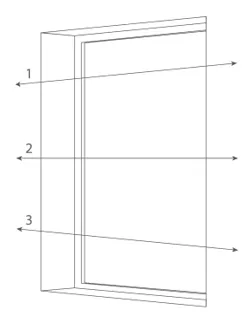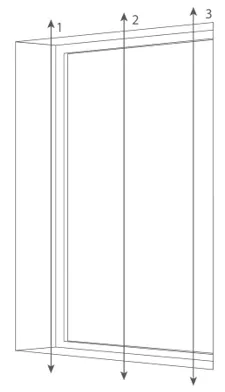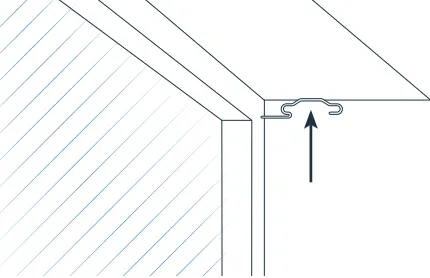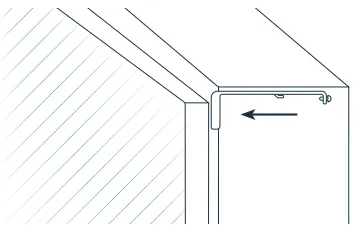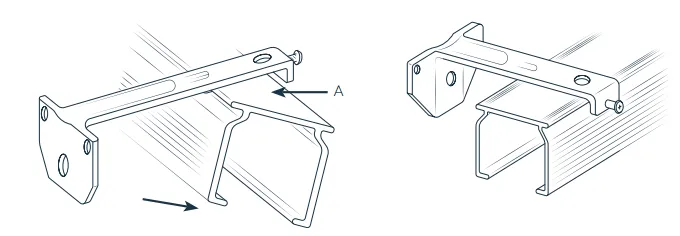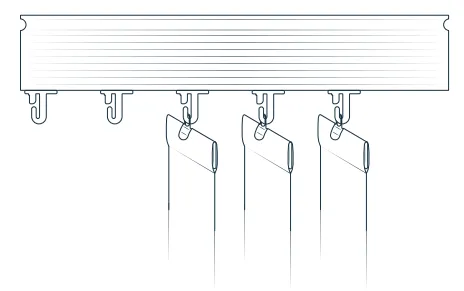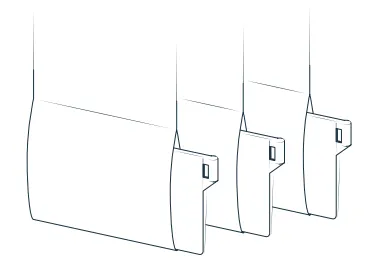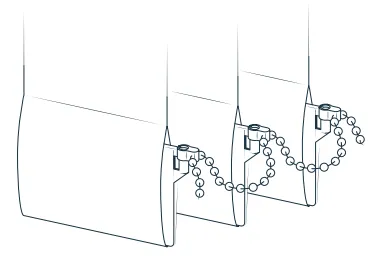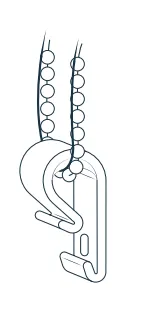Stratford Linen Vertical Blind
These blinds feature a neutral beige tone that adds a soft and neutral touch to your space. This versatile shade complements light colour schemes by blending perfectly, creating a serene and understated look, while it contrasts gently with darker colours, offering a balanced and harmonious feel.
Vertical blinds effortlessly blend classic charm with modern functionality, making them a versatile choice for any space in your home. Their sleek, vertical design brings a sophisticated touch to your decor, providing a timeless look that enhances both contemporary and traditional interiors.
Available in a wide array of colours, patterns, and textures, our custom-made vertical blinds are designed to fit your windows perfectly. This variety allows you to personalise your space with ease, offering precise control over light and privacy. Enjoy the blend of style and practicality that vertical blinds bring to any room, ensuring a refined and functional window dressing solution.




